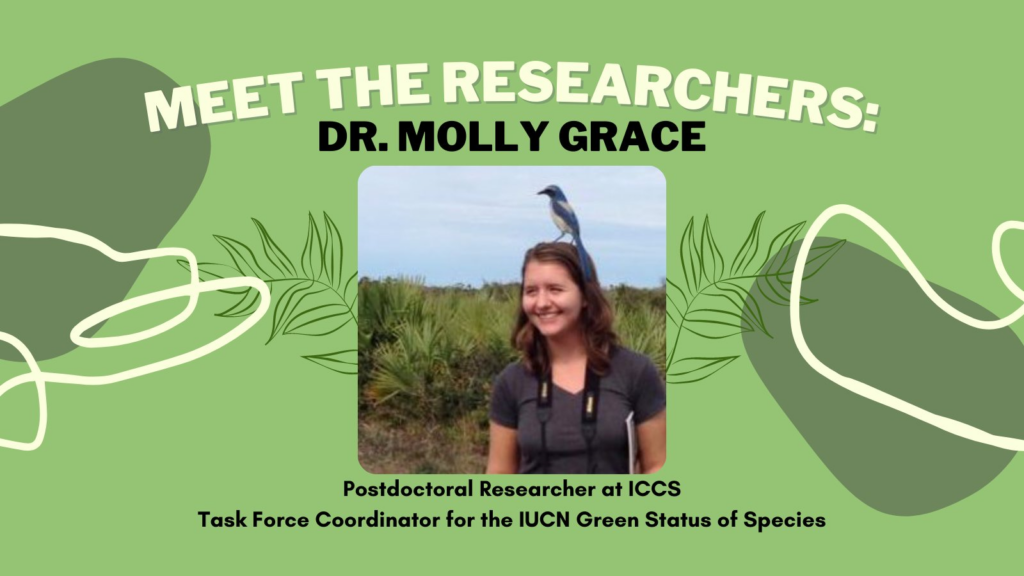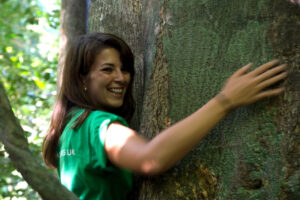University of Oxford
11a Mansfield Rd
OX1 3SZ
UK

By Alana Halpin.
“So, what are you going to do with your degree?”
This is probably one of the most common (and dreaded!) questions students are asked, with the go-to answer being along the lines of: ‘I’m not sure yet, I’ll see what happens’. This summer, I was able to do something to help me give a more concrete answer.
I started out on my internship wanting to seek answers about PhD student life, and what being part of a research group is like. Given the online life we’re all so used to leading now, being able to go out to the field feels very out of reach. So I was also eager to hear perspectives about leaving the university bubble to go off into the world to do research. The week met all of these aims and more – I gained a real insight into the conservation world.
E.J. and the group put me and the other two interns at ease very quickly, going out of their way to welcome us into the fold and check in on how we were doing. Being able to join the lab group meetings before I even officially started was a lovely way to avoid the feeling of being thrown in the deep end, and a chance to hear snippets of the projects everyone was working on. Seeing some of the 4-legged members of the group sneaking across computer screens definitely was a perk too!

As an intern trio, we decided to do a social media takeover by interviewing as many members of the group as we physically could, both over Zoom and excitingly in person. This ended up being an easy way to get our steps in for the day as we sprinted around Oxford to various cafes! Having the opportunity to hear the researchers talk about their work was the best part of the experience, and we were really able to get a flavour for their motivations, passions and stories. Including ‘Interdisciplinary’ in ICCS’ name is truly apt – everyone has had a unique journey into the group and brings a diverse set of skills and knowledge that they use to try and save the natural world. Hearing how the group keeps going despite setbacks with their research, and the difficulties in transferring results into policy, really highlighted how conservation isn’t an easy road. As Trisha Gupta said in her interview, in conservation (and life in general) we must embrace the small victories. It takes true grit and hard work, but being able to do what you love, and hopefully make a difference, makes it all worth it.
Another task we set ourselves was updating the map of where the group members come from. A few of my afternoons spent carefully copying names, places, and fun facts later, the final product shows how much of a global team ICCS is! You can see the map here.
All in all, it was a week of meeting amazing people doing amazing things. ICCS is a vibrant, multicultural group all united by a shared passion to protect ecosystems we are placing increasing pressure on.
A quote from Wulan Pusparini’s interview really stuck with me and sums up one of my main takeaways from this experience: “all conservationists are heroes!”
Here are some of our interviews:

